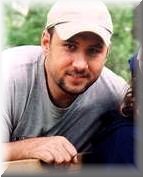Robert E. Harrington m. Betty Williams
Edgar Harrington m. Betty Billett
Cleo Harrington m. Pauline Burket
John T. Harrington m. Elizabeth VanDine
Theophilus Harrington II m. Charlotte Mills
Theophilus Harrington (b. March 27, 1762 - d. November 18, 1813) m. Elizabeth 'Betsy' Buck (b. November 28, 1760 - d. Feruary 5, 1854)
James Harrington m. Mary Dwinell
John Harrington (b. 1694?) m. Sarah ?? (b. 1712)
Issac Harrington (b. 1668 in Providenc, RI - d. 1727 in Norwich, CT) m. Sarah (b. ?? - d. 1744)
Benjamin Harrington (b. 1650) m. Elizabeth White
John Harrington (b. 1575?) m. Ann Clinton (1596-1653)
- John & Ann landed in Boston Harbor around 1630. John drowned in Boston Harbor shortly thereafter. Ann's father was Thomas Clinton (1571-1619), Third Earl of Lincoln. Ann died in Cambridge, MA on Christmas day, 1653. Her's is the oldest stone in Mount Auburn State Cemetery.
John Harrington (Writer, b. August 4, 1561-November 20, 1612) m. Mary Rogers on September 6, 1583, Cannington, Somersetshire, England.
- John Harrington was godson of Queen Elizabeth I and was a prominent member of her court who fell in and out of favor with the Queen. He was knighted by Robert Devereaux, Earl of Essex. Inventor of a fore-runner to the modern flush toilet.
John Harrington (the poet, b. 1525 - d. 1582) m. first to Etheldreda Dyngley (natural daughter of King Henry VIII), then to Isabel Markham in 1554.
- John's fist marriage produced no children as his wife died shortly after marriage, leaving him her full estate. Shortly after his marriage to Isabel Markham the couple were taken through the Traitor's Gate and imprisoned in the Tower of London with Princess Elizabeth.
- His work:
SONNET ON ISABELLA MARKHAM WHEN I FIRST THOUGHT HER FAIR, AS SHE STOOD AT THE PRINCESS'S WINDOW, IN GOODLY ATTIRE, AND TALKED TO DIVERS IN THE COURT-YARD.Whence comes my love? O heart, disclose;It was from cheeks that shamed the rose,From lips that spoil the ruby's praise,From eyes that mock the diamond's blaze:Whence comes my woe? as freely own;Ah me! 'twas from a heart like stone.
The blushing cheek speaks modest mind,The lips befitting words most kind,The eye does tempt to love's desire,And seems to say, ''Tis Cupid's fire;'Yet all so fair but speak my moan,Since nought doth say the heart of stone.
Why thus, my love, so kind bespeak Sweet eye, sweet lip, sweet blushing cheek Yet not a heart to save my pain;O Venus, take thy gifts again;Make not so fair to cause our moan,Or make a heart that's like our own.
Sir John Harrington of Exton, Rutland England m. Elizabeth Morton
- Sir John Harrington was treasurer of the Army of King Henry VIII.
Sir John Harrington, Knight of Exton m. ___________
Robert Harrington (d. 1501) m. Maude Prisett
- Robert served as Sherriff for the County of Rutland, 1490-1498.
John Harrington of Aldringham m. Catherine Colpepper
- By this marriage, John acquired the Manor of Exton in Rutlandshire and fixed his residence there.
Robert Harrington of Aldringham (b. 1421) m. daughter of John de Laund
John Harrington of Aldringham (b. ?? - d. 1401) m. Agnes Flete, daughter of Laurence Flete
Robert Harrington of Aldringham (b. probably after 1307 - d. about 1334) m. Elizabeth Moulton
- Robert died before his father and the Lordships and estates descended to his son, John. He was knighted in the King's service and died during the expedition of Ireland.
Sir John Harrington, Lord of Aldringham (b. about 1281 - d. July 2, 1347) m. Joan De Dacre
- Lord Harrington, along with Prince Edward, was Knighted in 1306 by King Edward I. He was declared 1st Baron Harrington of Aldringham upon being summoned to Parlaiment in 1326, where he served until his death in 1347. The photo at right is the Harrington Tomb at Cartmel Priory, Cartmel, Lancashire, England.
Robert Harrington (b. before 1262 - d. 1297) m. Agnes Cansfield
- Robert's surname was derived from Haverington, a Cumberland County, England Lordship which the family had been in possesion of since ancient times. Upon his marriage to Agnes, Robert acquired the Manor at Aldringham - which became the chief seat of the Harrington family.
 Researchers and archeologists believe that this particular Robert Harrington may also be known as "St. Bees Man". Click on his photo to read about it.
Researchers and archeologists believe that this particular Robert Harrington may also be known as "St. Bees Man". Click on his photo to read about it.
Michael De Haverington (b. about 1241 in Flemingby, England - d. ??) m. ____________
- Flemingby is now known as the village of Flimby.
Thomas De Haverington (b. about 1215 in Flemingby, England - d. ??) m. ______________
Robert De Haverington of Haverington and Flemingby (b. before 1189 in Haverington, Cumberland, England - d. ?? at Flemingby Manor, England) m. Christiana
Oswolf (or Latin Osulphus)
I'm still doing research about Oswolf and there are some connections that I'd like to find documentation for, but this is what I have so far.






